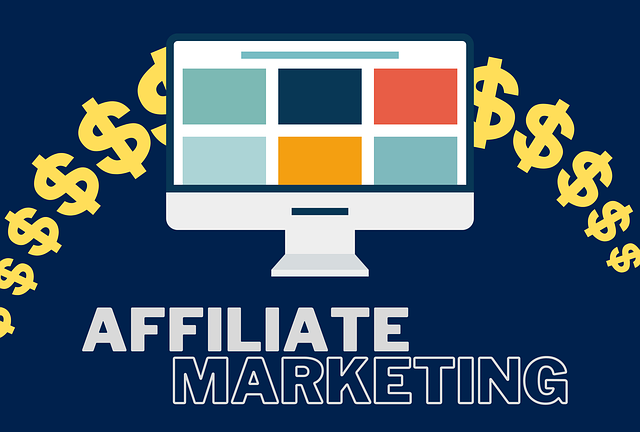Social Media Marketing (SMM) is a powerful tool in today's digital marketing landscape, enabling businesses to connect with their audience and boost online presence. By strategically targeting specific demographics through tailored content on platforms like Instagram, Twitter, LinkedIn, and Facebook, brands can increase engagement, drive traffic, and generate leads. Effective SMM involves creative content, data analysis, and influencer partnerships to maximize reach and conversions in a competitive digital environment, where understanding target audiences and leveraging analytics are key to success.
In the dynamic landscape of digital marketing, social media has emerged as a powerful tool for businesses to connect with their audience. This article delves into the intricacies of social media marketing (SMM), guiding you through key strategies essential for success in the digital age. From understanding your target audience and selecting the right platforms to crafting engaging content and leveraging hashtags and influencer partnerships, we’ll explore proven tactics to maximize reach and drive tangible results.
Understanding Social Media Marketing in the Digital Age

In today’s digital age, Social Media Marketing (SMM) has emerged as a powerful tool for businesses to connect with their audience and drive brand awareness. It transcends traditional marketing boundaries by leveraging online platforms like Facebook, Instagram, Twitter, LinkedIn, and TikTok to foster interactions and create meaningful relationships. SMM is not just about posting content; it involves strategic planning, audience segmentation, and data analysis to ensure messages resonate with the right people at the right time.
Effective SMM requires a deep understanding of Digital Marketing principles. It encompasses creating engaging content that aligns with platform-specific guidelines, optimizing posts for search algorithms, and utilizing paid advertising options to boost reach. By integrating SMM into their overall digital marketing strategy, businesses can enhance customer engagement, increase website traffic, generate leads, and ultimately drive sales, solidifying their online presence in a highly competitive marketplace.
Defining Your Target Audience for Effective Campaigns

In the realm of digital marketing, understanding your target audience is a game-changer. It’s not enough to create engaging content; you must tailor it to resonate with specific individuals. Defining your target audience involves delving into demographics, interests, and behaviors. By knowing their age, gender, location, and online preferences, marketers can create personalized campaigns that capture attention.
This strategy ensures that efforts in social media marketing are not just broad strokes but precise strikes at the heart of potential customers. It fosters a connection between brands and consumers, leading to increased engagement and conversion rates. In today’s competitive digital landscape, knowing your audience is the first step towards successful campaign navigation and long-term brand loyalty.
Choosing the Right Platforms for Maximum Reach

In the realm of digital marketing, selecting the optimal social media platforms is a strategic move that can significantly impact your campaign’s success and reach. Each platform caters to different audiences and offers unique features, ensuring that the right content finds its target market. For instance, Instagram is ideal for visually appealing content, making it excellent for brands looking to showcase products or services with high-quality images and videos. In contrast, Twitter suits quick, concise updates and real-time interactions, perfect for news and customer service.
LinkedIn, a professional network, is valuable for B2B marketing and industry-specific discussions. Facebook, with its diverse demographic reach, allows for targeted advertising based on age, location, and interests. Choosing the right platforms involves understanding your brand’s goals and the behavior of your target audience. By aligning content with platform preferences, marketers can maximize engagement and convert online interactions into tangible results.
Crafting Compelling Content That Engages Followers

In the realm of digital marketing, crafting compelling content is an art that captivates and engages followers. To stand out in the hustle and bustle of social media, brands must create content that resonates with their audience, fostering a sense of connection and loyalty. This involves understanding the target demographic, their interests, and what triggers emotional responses—whether it’s humor, inspiration, or shared experiences. By blending creativity with strategic planning, marketers can develop engaging posts, videos, and stories that not only attract but also retain followers.
The key lies in balancing information, entertainment, and interaction. Incorporating interactive elements like polls, quizzes, or user-generated content encourages participation, transforming passive followers into active contributors. Additionally, staying abreast of trends and leveraging relevant hashtags amplifies reach, ensuring the content gains visibility among a broader audience. In today’s digital era, where attention spans are shorter than ever, captivating content is not just desirable but indispensable for successful social media marketing.
Utilizing Hashtags and Influencer Partnerships Strategically

In the realm of digital marketing, hashtags and influencer partnerships are powerful tools that, when used strategically, can amplify brand visibility and engagement. Hashtags act as a gateway to connecting content with relevant audiences, allowing brands to tap into existing online conversations and trends. By carefully selecting specific and popular hashtags, businesses can increase their social media reach and attract potential customers interested in similar products or services. This simple yet effective strategy ensures that valuable content doesn’t go unnoticed.
Influencer partnerships further enhance the impact of digital marketing efforts. Collaborating with influencers who align with a brand’s values and target audience can build trust and credibility. These partnerships offer an authentic voice to promote products, as influencers have established relationships with their followers. When they endorse a brand, it feels more organic and convincing, leading to higher conversion rates. This strategy is particularly effective in the fast-paced world of social media, where trends change swiftly and engagement demands constant innovation.
Measuring Success: Analytics and ROI in Social Media Marketing

In the realm of digital marketing, social media platforms offer a powerful tool for businesses to engage and grow their audience. However, understanding success requires more than just posting content. Measuring the effectiveness of social media marketing campaigns is crucial for any brand aiming to optimise their strategy. Analytics provide insights into consumer behaviour, allowing marketers to track key performance indicators (KPIs) such as engagement rates, reach, and conversions. By analysing these metrics, businesses can gauge the return on investment (ROI) of their social media efforts.
For instance, tracking website traffic from social media platforms enables marketers to identify which strategies are driving the most valuable leads or sales. This data-driven approach ensures that resources are allocated efficiently, maximising the impact of digital marketing campaigns. Additionally, by comparing performance across different platforms and content types, businesses can refine their strategies to better resonate with their target audience in today’s bustling digital landscape.
